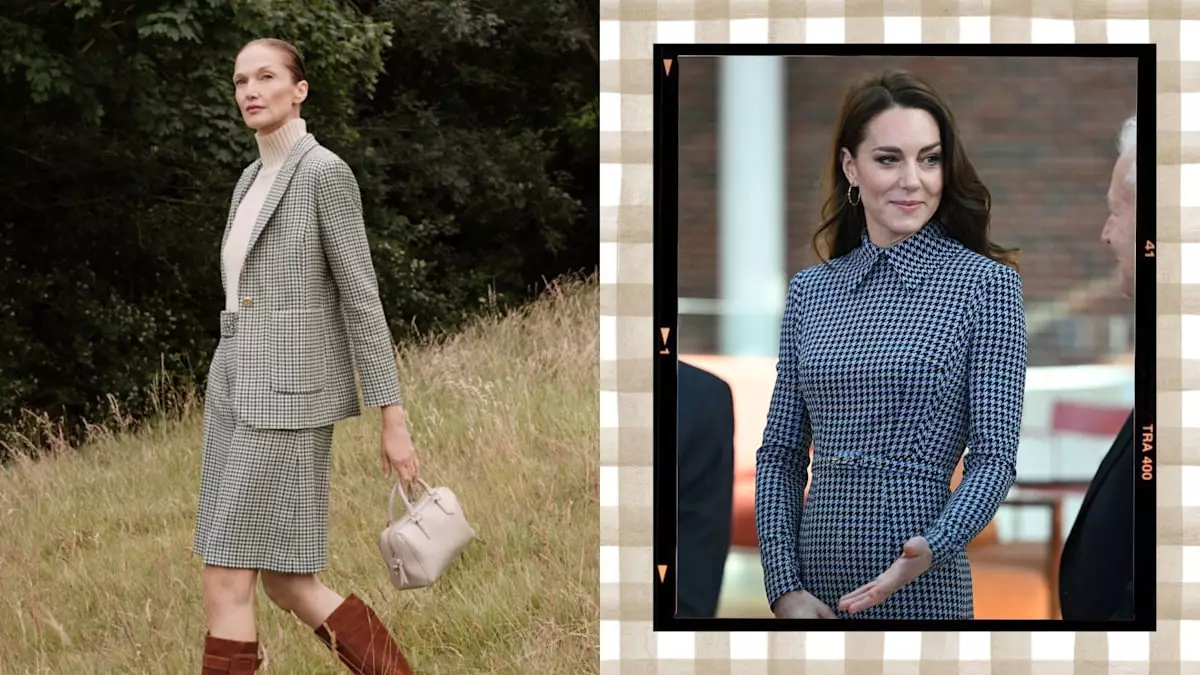In recent years, the fashion industry has been standing at a crossroads, particularly with the growing awareness of the environmental impact of clothing production and disposal. Traditional retail models have been challenged by a fresh wave of sustainable practices, among which rental services have emerged as a noteworthy contender. One such service, LK Borrowed, associated with the British brand L.K. Bennett favored by prominent figures like the Princess of Wales, has begun promoting an innovative subscription model since 2021. This approach not only offers access to high-quality garments but aligns with a growing consumer demand for more ethical fashion choices.
The urgent conversation surrounding sustainability in fashion cannot be ignored. Fast fashion has proliferated an overwhelming consumption model, resulting in landfills overflowing with discarded clothing. This industry reportedly contributes nearly 10% of global carbon emissions, prompting consumers to rethink their wardrobes drastically. Rental fashion models provide an enticing solution, shifting the emphasis from ownership to access, thus encouraging a more sustainable cycle of clothing use.
L.K. Bennett’s rental service diverges from traditional pay-per-item rental schemes. For a monthly subscription fee of £79, customers can rotate through multiple garments—up to eight times in a single month. This format empowers subscribers to consistently refresh their wardrobes with stylish selections without the attendant guilt of their environmental footprint. Furthermore, for those enamored by particular pieces, the option to purchase rented items at a discount makes this approach both practical and appealing.
The decision to engage in a rental wardrobe can redefine one’s perspective on fashion consumption. For those attempting to break free from the cycle of unnecessary purchases, like I did when pledging to avoid fast fashion, this model delivers both variety and sustainability. It presents a compelling value proposition for individuals who previously felt compelled to indulge in frequent new purchases. With this subscription, users can experience the luxury of having fresh styles regularly without the daunting commitment of ownership.
The financial implications of transitioning to a rental wardrobe are striking. Before embracing a more sustainable fashion ethos, I spent over £100 monthly on clothing, fueled by impulse purchases under the fast fashion model. In contrast, the LK Borrowed service provides a more manageable financial commitment that not only allows for high-quality fashion but is fundamentally more sustainable. Priced at £79 per month, this service becomes even more economical in comparison to everyday expenditures like gym memberships, smartphone subscriptions, or public transport commutes in London.
Moreover, the financial discipline that results from choosing a rental service is noteworthy. A commitment to sustainable, second-hand, or vintage shopping has fostered a mindfulness around spending. Individuals are incentivized to scrutinize their choices, leading to better financial decisions and a more curated sense of style. The idea that one can enjoy a constantly evolving wardrobe at a lower overall cost than traditional consumption patterns is a significant modern advantage.
Rental fashion doesn’t just revolutionize personal wardrobes; it also plays a significant role in shifting cultural perceptions around clothing ownership. By popularizing the concept of a “rotating wardrobe,” these services have the potential to alter the entrenched consumer mindset that equates value with ownership. This can catalyze a broader cultural shift towards sustainability in fashion, leading consumers to embrace quality over quantity.
As a society, we are increasingly mindful of our impact on the planet. The rental model supports a circular economy, reducing waste and encouraging a culture of shared experiences. This evolution in fashion consumption could mark a transition towards more responsible consumer habits, as it promotes the idea that clothing can be obtained and shared rather than simply bought and discarded.
The emergence of rental fashion models signifies a pivotal moment not only for individual consumers but also for the industry at large. The convenience of access to fashionable items without the burden of ownership presents an appealing alternative to the traditional fashion consumption paradigm. As we collectively strive to diminish our carbon footprint, initiatives like LK Borrowed herald a new age of responsible fashion engagement, where style and sustainability coalesce. Embracing rental fashion could very well be the key to a more ethical and conscientious future in wardrobe management.


Leave a Reply